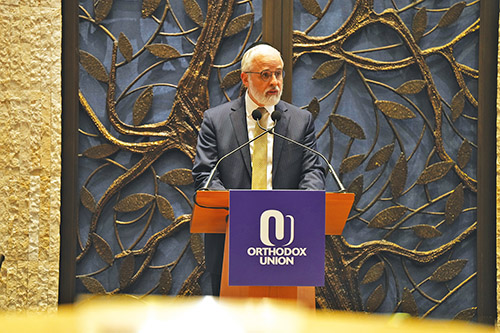
Do You Care?
Our parsha introduces us to the various offerings that were brought in the Temple, with extensive discussion about the korban chatas, the sin offering. These

Our parsha introduces us to the various offerings that were brought in the Temple, with extensive discussion about the korban chatas, the sin offering. These

“The foundation of true accomplishment is a clear focus on mission, on the goal and purpose towards which we point all our efforts.” While this

Anticipation, waiting, looking forward. It is a difficult task to do these patiently, remaining focused on the goal and willing to wait for it, however

In the coming days, we will celebrate Purim, a holiday built on the theme of v’nahapoch hu—how everything can instantly be turned upside down. In

We must build a better world. This ideal seems quaint and hopelessly out of reach. The world around us raises constant reminders of the distance

Powerful people exercise control over others that obscures their view of God. Good people employ kindness and respect, and marshal their resources to highlight God’s

How do we relate to what happens around us? Do we notice the subtle or even the obvious? Do we allow our observations to make

This Shabbos, we celebrate Shabbat Shira—recalling the song Klal Yisrael sang after miraculously crossing the sea to freedom. Song erupts spontaneously, “ala beleebo sheyashir” (Rashi,

We easily see in others, and with difficulty see in ourselves, how mistakes are repeated and obvious lessons ignored. We know it is critical for

When Moshe first approached Pharaoh to free Klal Yisrael, Pharaoh moved to intensify our oppression. While our situation was bad enough to prompt us to

At the beginning of the parsha (1:8), our slavery in Egypt is described as beginning with the rise of a new king over Egypt, “who

When Yosef revealed his identity to his brothers, he joined with Pharaoh in sending wagons to carry Yaakov and his family back to Egypt. The